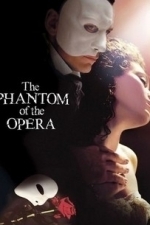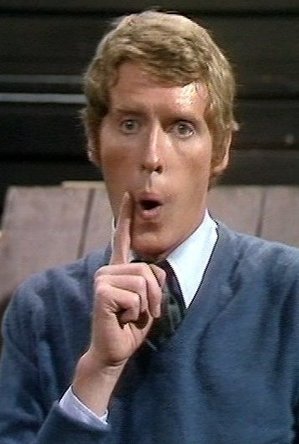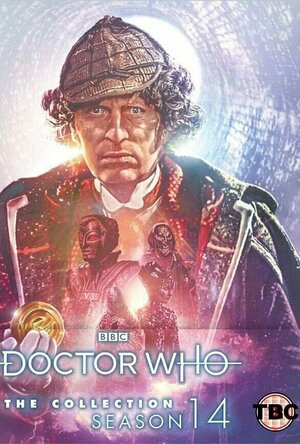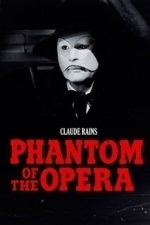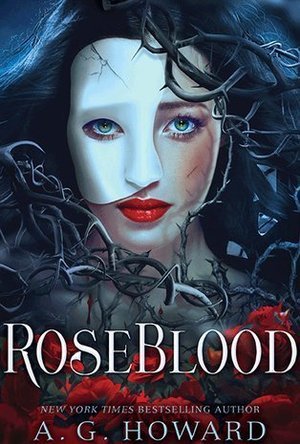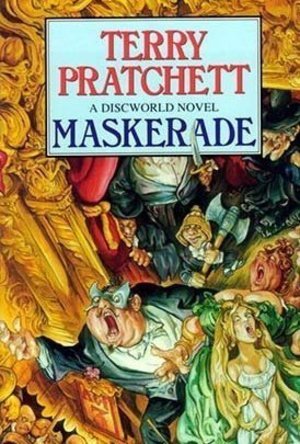Search
Search results
Matthew Krueger (10051 KP) created a poll
Sep 27, 2019 (Updated Oct 1, 2019)
Beatriz (138 KP) rated The Phantom of the Opera (2005) in Movies
Nov 28, 2018
Stunning music (1 more)
Great actors
The Phantom Of The Opera
This film is one of the classics.
Phantom Of The Opera is a musical, the songs were composed by Andrew Lloyd Webber, a very knows British composer that has written a lot of other songs to other very famous musicals (ex: Cats and Evita).
The film takes place is Opera Popullaire and it starts when Christine (the main character), a ballerina, replaces Carlotta, the opera main star and becomes famous due to her signing classes with her mysterious teacher, The Phantom. In the meanwhile she founds her childhood old love and they fall in love again leaving The Phantom heart broken. It’s a romance triangle.
Its dramatic. Emotional. And very worth the watch.
Phantom Of The Opera is a musical, the songs were composed by Andrew Lloyd Webber, a very knows British composer that has written a lot of other songs to other very famous musicals (ex: Cats and Evita).
The film takes place is Opera Popullaire and it starts when Christine (the main character), a ballerina, replaces Carlotta, the opera main star and becomes famous due to her signing classes with her mysterious teacher, The Phantom. In the meanwhile she founds her childhood old love and they fall in love again leaving The Phantom heart broken. It’s a romance triangle.
Its dramatic. Emotional. And very worth the watch.
David McK (3402 KP) rated The Phantom of the Opera (2005) in Movies
Jul 11, 2022
The Phantom of the Opera is here ...
2005 film version of the Broadway show, starring Emmy Rossum (Christine Daae) and Gerard Butler (as the Phantom).
And therein lies it's greatest problem: Butler (and, to an extent, all the modern Phantom's) is just too conventionally good-looking for the hideous disfigured gargoyle who haunts the Parisian Opera catacombs but dreams of higher things!
That aside, this is definitely sumptuously filmed, with some great sets. Some catchy tunes, with the latter to be expected
I.t's just that, well, it does tend to drag a bit.
I suppose, in effect, it's like going to the Opera without actually going to the Opera ...
And therein lies it's greatest problem: Butler (and, to an extent, all the modern Phantom's) is just too conventionally good-looking for the hideous disfigured gargoyle who haunts the Parisian Opera catacombs but dreams of higher things!
That aside, this is definitely sumptuously filmed, with some great sets. Some catchy tunes, with the latter to be expected
I.t's just that, well, it does tend to drag a bit.
I suppose, in effect, it's like going to the Opera without actually going to the Opera ...
Paul Tyrrell (139 KP) rated Some Mothers Do 'Ave 'Em in TV
Apr 18, 2020 (Updated Apr 18, 2020)
Still got it
Still one of the greatest comedy creations. How Michael Crawford went from the bumbling Frank Spencer to The Phantom of the Opera is anyone's guess; but watch this if you can and enjoy some of the best physical comedy since the silent movies of Keaton and LLoyd
Kevin Phillipson (10018 KP) rated Talons of Weng Chiang in TV
Jul 18, 2020
Tom baker (1 more)
Louise Jameson
Classic who probably my favourite 4th doctor story of all time it has everything the doctor dressed Sherlock Holmes Fu man Chu type villain part jack the ripper phantom of the opera what's not to love about this story. Only gripe white actors made up as Chinese characters in this day and age wouldn't happen classic all the way
Doug Jones recommended Phantom of the Opera (1943) in Movies (curated)
I am most familiar with the tale of the Phantom of the Opera from the musical of that name. It is likely different from the book by Gaston Leroux. I havent read the original novel that inspired the opera and RoseBlood itself in years. As a result, I am sure that I miss some nods to the original or nuances that people more familiar with the story will understand.
Our main character, Rune has a unique relationship with music. Certain works, usually arias written for women, speak to her and make their home in her soul. Upon hearing the soaring notes, she is immediately overtaken by the need to sing and expel the music. When she was younger and her father accompanied her on the violin, those moments were glorious but they did not last. Her father became ill and then died, leaving her with no accompaniment and the music began to cage her. No longer could she just release the notes inside her, but they took something with them and left her feeling ill. If the piece spoke to her she had no choice but let it overwhelm her vocal cords and release.
The Phantom lives in his classic dark dwelling beneath the school, which was once an opera house. He travels the underground river via a boat, has various neglected instruments strewn about and is friendly with a red swan. Just your normal phantom behavior. Pretty early on, we learn that who we first believe to be this iteration of the phantom is not the one from the book and are introduced to the Phantom himself. The Phantom is Thorns guardian and teacher, although he has been sickly lately and Thorn has been taking care of him.
There is an interesting addition in this version of auras and chakras. Rune, Thorn and the Phantom are able to see the music as it fills the air with colour. The Phantom even taught Thorn how to harness that auric energy from emotions, and the even more powerful music, to do things like manipulating feelings and thoughts. Together, Thorn and the Phantom plan to alienate Rune from her teachers and classmates until she discovers the lair surrenders to the darkness and they hope she gives up her music to them.
Runes first day at RoseBlood does not go exactly as she hoped, but her new friend and peer advisor, Sunny introduces her to Jackson Reynolds. My immediate feelings about the two were that they were playing this retelling's version of Meg and Raoul, whether that is, in fact, true you shall have to discover by reading the book. Her relationship with her Phantom parallels that of the original, as he helps her to calm the music inside her.
Although the author provides reasoning later on for their immediate connection and trust, it still feels like insta-love. To know someone for only a short while and frequently consider abandoning or betraying everything youve ever known and believed in for the past decade. That is intense and not something people could just easily give up on whether it is the right way or not.
While I did enjoy this book, I probably would not go out and purchase a copy for myself. In order to make this the next chapter of the Phantom of the Opera, rather than a re-telling the author added some different aspects to the story that were not in the original. I am not entirely sure how I feel about this change it was interesting but as I was reading I didnt feel or believe that it was as well thought out as it should have been. I think that the idea of the story was a lot more intriguing than the actual execution of it ended up being.
After the conclusion of the book, there is a note from the author that describes what inspired her to write this version of the story. It shows where she got each of her ideas and the amount of thought that went into them. As I stated before, I see the merit of each addition (and admire the research that went into them) but it just seemed to be a little too much added and it became unwieldy.
Our main character, Rune has a unique relationship with music. Certain works, usually arias written for women, speak to her and make their home in her soul. Upon hearing the soaring notes, she is immediately overtaken by the need to sing and expel the music. When she was younger and her father accompanied her on the violin, those moments were glorious but they did not last. Her father became ill and then died, leaving her with no accompaniment and the music began to cage her. No longer could she just release the notes inside her, but they took something with them and left her feeling ill. If the piece spoke to her she had no choice but let it overwhelm her vocal cords and release.
The Phantom lives in his classic dark dwelling beneath the school, which was once an opera house. He travels the underground river via a boat, has various neglected instruments strewn about and is friendly with a red swan. Just your normal phantom behavior. Pretty early on, we learn that who we first believe to be this iteration of the phantom is not the one from the book and are introduced to the Phantom himself. The Phantom is Thorns guardian and teacher, although he has been sickly lately and Thorn has been taking care of him.
There is an interesting addition in this version of auras and chakras. Rune, Thorn and the Phantom are able to see the music as it fills the air with colour. The Phantom even taught Thorn how to harness that auric energy from emotions, and the even more powerful music, to do things like manipulating feelings and thoughts. Together, Thorn and the Phantom plan to alienate Rune from her teachers and classmates until she discovers the lair surrenders to the darkness and they hope she gives up her music to them.
Runes first day at RoseBlood does not go exactly as she hoped, but her new friend and peer advisor, Sunny introduces her to Jackson Reynolds. My immediate feelings about the two were that they were playing this retelling's version of Meg and Raoul, whether that is, in fact, true you shall have to discover by reading the book. Her relationship with her Phantom parallels that of the original, as he helps her to calm the music inside her.
Although the author provides reasoning later on for their immediate connection and trust, it still feels like insta-love. To know someone for only a short while and frequently consider abandoning or betraying everything youve ever known and believed in for the past decade. That is intense and not something people could just easily give up on whether it is the right way or not.
While I did enjoy this book, I probably would not go out and purchase a copy for myself. In order to make this the next chapter of the Phantom of the Opera, rather than a re-telling the author added some different aspects to the story that were not in the original. I am not entirely sure how I feel about this change it was interesting but as I was reading I didnt feel or believe that it was as well thought out as it should have been. I think that the idea of the story was a lot more intriguing than the actual execution of it ended up being.
After the conclusion of the book, there is a note from the author that describes what inspired her to write this version of the story. It shows where she got each of her ideas and the amount of thought that went into them. As I stated before, I see the merit of each addition (and admire the research that went into them) but it just seemed to be a little too much added and it became unwieldy.
David McK (3402 KP) rated Maskerade (Discworld, #18; Witches #5) in Books
Mar 28, 2021 (Updated Aug 19, 2023)
!!!!!
If I was forced to pick, I would have to say that - speaking personally - I think Terry Pratchett was at the height of his powers in the mid-to-late 90s, before the Discworld books started becoming overly serious.
So, around the time of the likes of 'Lords and Ladies, 'Small Gods', and this one, in other words.
(and I've just realised that 2/3rds of those books quoted concern The Witches Nanny Ogg and Granny Weatherwax)
In this one, and following Magrat marriage to King Verence, the Witches find themselves down to a duo instead of a trio, and - since you can't have a coven of two ("When shall we ... two ... meet again ....") - are in need of a replacement (well, so Nanny Ogg thinks).
Said replacement is the first appearance of Agnes Nitt who, unfortunately (from their perspective) has moved to the city of Ankh-Morpork and joined the Opera.
Cue Pratchett's take on 'The Phantom of the Opera' (which, when I first read this, I'd never actually seen) ...
So, around the time of the likes of 'Lords and Ladies, 'Small Gods', and this one, in other words.
(and I've just realised that 2/3rds of those books quoted concern The Witches Nanny Ogg and Granny Weatherwax)
In this one, and following Magrat marriage to King Verence, the Witches find themselves down to a duo instead of a trio, and - since you can't have a coven of two ("When shall we ... two ... meet again ....") - are in need of a replacement (well, so Nanny Ogg thinks).
Said replacement is the first appearance of Agnes Nitt who, unfortunately (from their perspective) has moved to the city of Ankh-Morpork and joined the Opera.
Cue Pratchett's take on 'The Phantom of the Opera' (which, when I first read this, I'd never actually seen) ...
David McK (3402 KP) rated V for Vendetta (2005) in Movies
Oct 23, 2022
Remember, remember, the fifth of November ...
2005 adaptation of the 1980's Alan Moore classic, set in a near-future dystopian Britain where the populous is afraid of the (fascist) government, and where a vigilant known only as V uses terrorist tactics to rebel against said government and slowly falls for a young reporter named Evie
The story, then, has more than a hint of The Phantom of the Opera about it - both involve masked figures who live in the shadowy underworld, both involve melodrama and a star-crossed love story - with Hugo Weaving never once showing his face through the entire runtime, but still - impressively - able to convey his emotions through his acting.
The story, then, has more than a hint of The Phantom of the Opera about it - both involve masked figures who live in the shadowy underworld, both involve melodrama and a star-crossed love story - with Hugo Weaving never once showing his face through the entire runtime, but still - impressively - able to convey his emotions through his acting.
